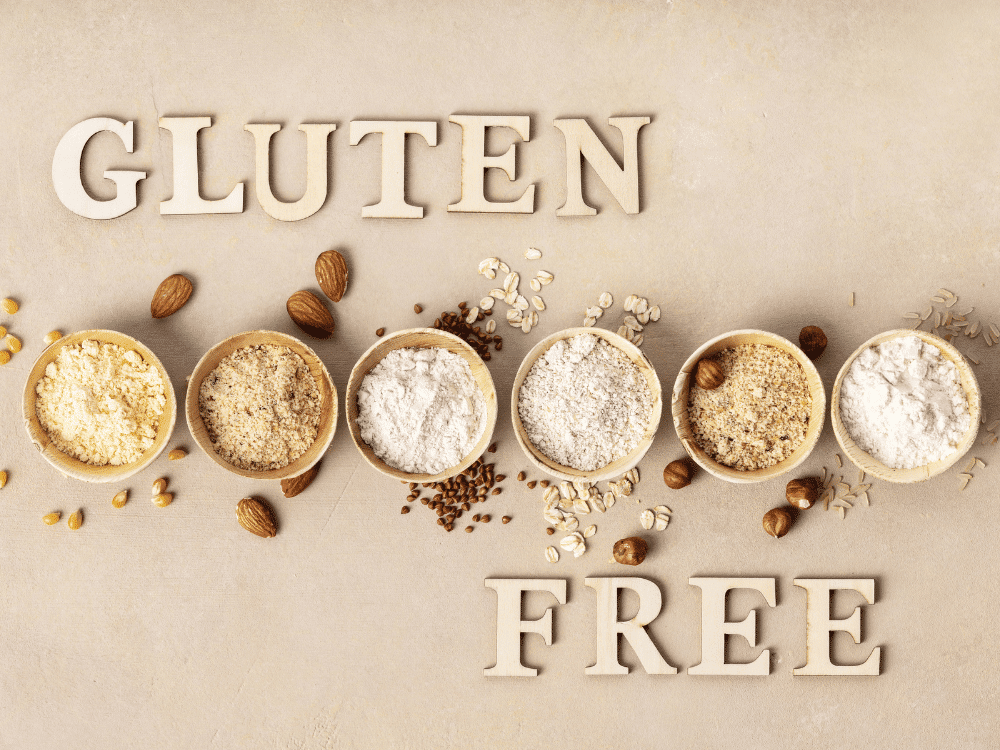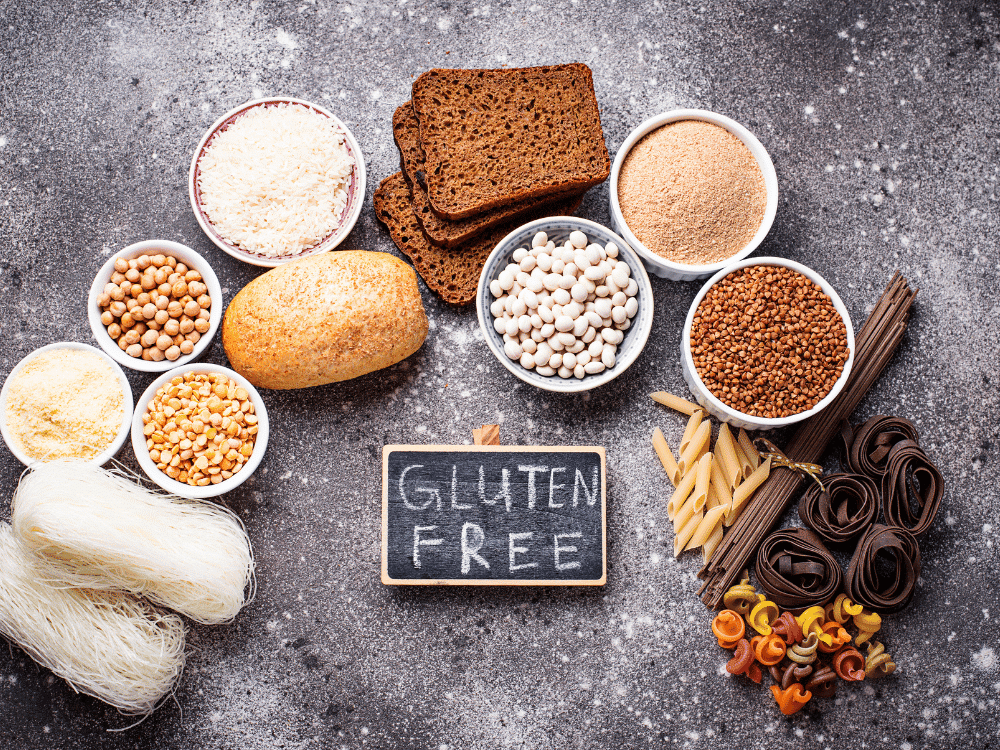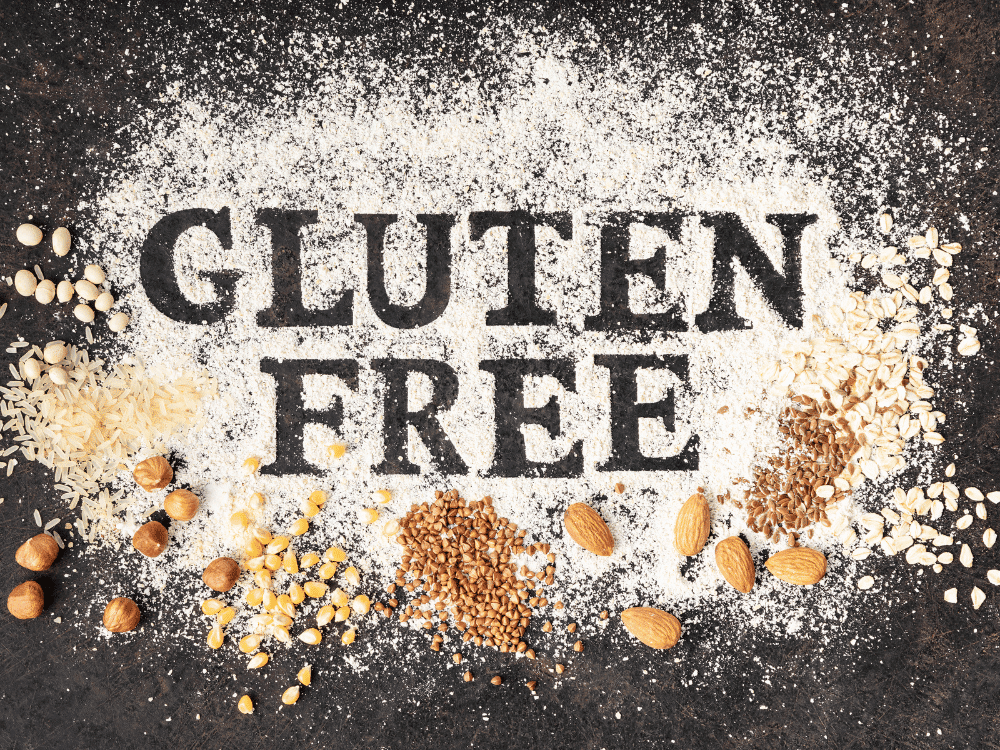In today's world of nutrition and healthy lifestyle, more and more attention is paid to different aspects of nutrition. One of the topics that has gained significant popularity is gluten - the protein present in grains such as wheat, barley and rye. Gluten has played a key role in the human diet for centuries, but in recent years more and more research has been done into its effects on health.
The gluten-free diet involves eliminating gluten from the diet, often associated with better digestion, more energy and improved general health. However, the topic of gluten and its role in nutrition is not black and white. While some people do indeed suffer from celiac disease—an autoimmune disease that requires complete avoidance of gluten—others may experience discomfort when consuming this protein, even though they have not been diagnosed with celiac disease.
One of our previous articles covered the topic gluten-free diet and weight loss. In this text you can also find foods that are naturally gluten-free as well as sample menus.
In this blog we will explore different aspects of the gluten diet and its effects on the body. We'll look at the benefits and potential drawbacks of a gluten-free diet, explore how gluten intolerance can be diagnosed, and provide advice on how to make informed decisions about your own gluten-related diet. Whether you are curious about this dietary trend or facing the need to avoid gluten, this blog will provide you with relevant information to make informed dietary decisions.
Different aspects of the gluten diet
The gluten-free diet brings with it a number of interesting aspects and facts concerning both health and cooking. For example, gluten is responsible for the elasticity of the dough when baking, which contributes to the softness and shape of the pastry. Although it is often associated with negative effects, most people do not need to avoid gluten unless they have a diagnosed intolerance or celiac disease.
On the other hand, there is also the term "non-celiac gluten sensitivity" (gluten intolerance in non-celiac individuals), which describes people who feel better when they avoid gluten but do not have a diagnosed celiac disease or wheat allergy. This is an area of debate among experts and researchers.
For people with celiac disease, a gluten-free diet can be a strict commitment. Even traces of gluten in food or on food preparation surfaces can cause serious health problems. On the other hand, alternative grains such as rice, corn, and quinoa can be safe options for those avoiding gluten.
The decision whether to avoid gluten should be made based on health needs and personal preferences, in consultation with a nutritionist.

Advantages and disadvantages of a gluten-free diet
Did you know that gluten, a protein present in wheat, barley and rye, plays a key role in shaping the dough and the softness of pastries? However, there is much more to learn about the pros and cons associated with a gluten-free diet.
The benefits of a gluten-free diet
Gluten is a key ingredient in many favorite baked goods, providing a texture and flavor that is difficult to achieve with other ingredients. And while most people can freely enjoy these flavors, people with celiac disease experience serious digestive problems if they consume gluten. For them, the advantage of a gluten-free diet is the avoidance of complaints such as abdominal discomfort, fatigue and weight loss.
Disadvantages of a gluten-free diet
Disadvantages occur when gluten intolerance is misdiagnosed. People who think they are sensitive to gluten but do not have celiac disease or a wheat allergy may be depriving themselves of nutrient-dense foods that are important for health. This restrictive diet can lead to deficiencies in fiber, iron, B vitamins and other nutrients.
Gluten Intolerance: Understanding Its Origins and How It Can Develop Over Time
Gluten intolerance, often called gluten intolerance or gluten sensitivity, is a complex issue in the world of nutrition and health. The question is whether it is possible to develop gluten intolerance over time, even if we did not have it before.
The emergence of gluten intolerance
Gluten intolerance is most often associated with an autoimmune disease known as celiac disease. In this case, the immune system reacts to the presence of gluten by damaging the lining of the small intestine. This damage prevents adequate absorption of nutrients and can cause various symptoms such as diarrhea, abdominal pain, fatigue and skin changes.
The possibility of developing gluten intolerance over time
The question is whether it is possible for someone who has not been diagnosed with gluten intolerance in earlier years of life to develop this reaction later. Although the mechanisms of this process are still poorly understood, researchers have noted cases in which gluten intolerance and celiac disease have developed over time, even in people who previously tolerated this protein.
Possible factors for the development of gluten intolerance
Genetics play a key role in the predisposition to celiac disease, but other factors, such as changes in the immune system, can contribute to the development of gluten intolerance. Some people may carry genetic factors that increase the risk of developing an intolerance, but have never been exposed to enough gluten to trigger a reaction.
Although it is possible to develop gluten intolerance over time, it is still an area that requires further research. Individuals who notice changes in their relationship to gluten, such as the onset of symptoms after consumption, should consult with a nutritionist or gastroenterologist to understand their health and make informed dietary decisions.

How to find out if we are gluten intolerant?
More and more people are questioning whether they are intolerant to gluten, and knowing your reactions to this protein can be key to staying healthy. Although only a professional can diagnose gluten intolerance, there are steps you can take to better understand your body.
1. Keep a food diary
Start tracking your diet. Record what you eat, how you feel after a meal, and whether you notice any changes such as bloating, diarrhea, or fatigue. This can help identify patterns and potential triggers.
2. Examine reactions
If you notice that you often feel sick after eating gluten-containing foods, consider eliminating gluten from your diet temporarily.
This is called an elimination diet, and it can help you notice if your reactions improve.

Here's a weekly menu for a gluten-free elimination diet:
Day 1
- Breakfast: Boiled eggs with spinach and tomatoes.
- Lunch: Grilled chicken with vegetables.
- Dinner: Salmon with broccoli and boiled potatoes.
Day 2
- Breakfast: Smoothie with berries, almond milk and nuts.
- Lunch: Salad with grilled chicken, avocado and vegetables.
- Dinner: Chicken with vegetables in a wok pan.
Day 3
- Breakfast: Greek yogurt with fresh fruit and chopped nuts.
- Lunch: Quinoa salad with vegetables, red beans and avocado.
- Dinner: Roasted turkey with mushrooms and vegetables.
Day 4
- Breakfast: Scrambled eggs with tomatoes and spinach.
- Lunch: Salmon baked in the oven with Swiss chard and potatoes.
- Dinner: Chicken soup with vegetables.
Day 5
- Breakfast: Smoothie with banana, almond milk and peanut butter.
- Lunch: Chicken with peas and carrots.
- Dinner: Pork fillet with boiled vegetables.
Day 6
- Breakfast: Oatmeal with fruit and honey.
- Lunch: Quinoa with vegetables and mushrooms.
- Dinner: Grilled salmon with broccoli.
Day 7
- Breakfast: Omelet with ham and vegetables.
- Lunch: Chicken with integral rice and vegetables.
- Dinner: Grilled chicken and vegetables seasoned with curry.
During these seven days, avoid all foods containing gluten, such as wheat, barley, rye, and products made from these grains. Pay attention to your body's reactions, as well as any changes in symptoms during the diet.
After the seven days are up, you can gradually introduce gluten foods one at a time to see how your body reacts.
3. Consult an expert
If you suspect you are gluten intolerant, it is important to seek professional advice.
A gastroenterologist or nutritionist may refer you for tests such as testing for celiac disease or gluten intolerance. Do not eliminate gluten from your diet on your own before consulting a specialist, in order to avoid false test results.
4. Testing for gluten intolerance
There are also tests that can be done to determine gluten intolerance, but their reliability can vary. Testing may include blood tests or stool analysis to assess the body's reaction to gluten.
It is important to understand that gluten intolerance is not a universal experience and that symptoms vary from person to person. Self-diagnosing can lead to confusion and poor dietary decisions. If you have any doubts or concerns about your gluten tolerance, it is best to consult a professional for an accurate diagnosis and guidance on proper management.









